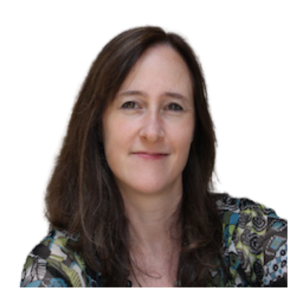Q – Hi Lee, thanks for taking the time to talk to us! To start, how do you find inspiration and then distil that down into a workable idea?
Lee Weatherly – Hi everyone! Great to be here, and a great question. I tend to have a lot of story ideas, so I guess I’m lucky that way. The hard part for me is knowing which idea to devote my time to. A novel such as Broken Sky will take me a year to write; the entire trilogy took over three.
So, part of choosing which idea to go with is sheer passion: do I love it enough to spend that amount of time with it? I’ll start playing with it and see if it feels like something that could work.
I’ll take a lot of notes, think about the characters and the world and so on, but, a lot of the time, I don’t really know until I get going with something whether it’s workable or not.
Q – Do you find that you launch into writing from an initial idea, or do you flesh it out before starting?
LW – I almost always flesh something out first, at least to some extent. When I first started I’d just plunge right in and then things would fizzle out after three chapters or so, because I had no idea what happened next.
Now I take a lot of notes and spend time playing with the idea and the characters first, though I try not to overplan, either – that kills the fun for me.
A happy medium works well for me, where I know the main ‘stepping stones’ of the story and have an idea of the ending, but leave many of the details open, to be found out as I write. All writers are different, though.
Q – Does your inspiration start with a theme or a character or an idea?
LW – My stories almost always come from a concept or idea to start with. Character follows very closely. Then I weave character arc and action arc together when planning.
I actually find it very helpful to end the day’s writing in the middle of an exciting scene that I’m enjoying – then I can plunge back into it with no hesitation the next day.
– Lee Weatherly
Q – You’re a very prolific writer, so how do you manage the stamina of writing? How many hours a day do you write?
LW – It depends on what stage I’m at with a novel. I try to reach particular word counts each day rather than keep an eye on the amount of time I write — though when I’m first starting out with something, the word count will be less than when I really get into the swing of things.
Some days my targeted word count doesn’t happen; real life sometimes manages to get in the way. You just have to go with it when that happens and not be too hard on yourself.
When I’m deep in the thick of it, I aim for 2,000 words a day. It’s worth noting that targeted word counts work for me, but not for every author — and I’ll confess that I find first drafts the hardest part of writing.
You’ll often find me counting my words obsessively and ending my day with a sigh of relief when I hit my coveted word count! Sometimes even mid-sentence.
I actually find it very helpful to end the day’s writing in the middle of an exciting scene that I’m enjoying — then I can plunge back into it with no hesitation the next day.
What ended up as my trilogy just felt like three books – I could see the whole story arc clearly and knew that it would take three novels to tell.
– Lee Weatherly
Q – In the case of the trilogy, when writing it did you know it was going to take that extended form?
LW – I suppose it just felt like three books… I could see the whole story arc clearly and knew that it would take three novels to tell.
Q – How did you find your ‘niche’, as it were? Was it an evolution of your writing or was it something you were aiming for?
LW – I’m not sure I have one! I write YA (young adult fiction) at the moment and I love it, but I have also written for young children and have several adult ideas. I’d say it was an evolution, I guess? I’m very lucky in that I’ve always written exactly what I most wanted to at the time.
When writing contemporary YA, I try to avoid too much slang or particular social media references, which can date a work very quickly.
– Lee Weatherly
Q – Do you think it was easier to write your first novel, with no pressures and years of ideas to draw on, or subsequent novels with publishing pressures and deadlines?
LW – Great question. Writing before I was published was definitely easier, or ‘freer’, in some respects (though more frustrating in others). I’ve had some insane deadlines in my time, which can make it difficult to enjoy the process.
Plus, when writing is your main income, there’s the pressure to create, which can stifle the joy if you’re not careful. It’s ideal if you can create a sort of mental bubble to live in.
Q – Do you have any advice for creating an authentic voice, particularly when writing YA?
LW – For me, it comes down to remembering how it felt to be that age. When writing contemporary YA, I try to avoid too much slang or particular social media references, which can date a work very quickly.
I love writing about alternative worlds, which gives me the freedom to explore teen concerns without modern day trappings.
If I’m honest, though, I think I’ll probably turn to adult fiction after my current project. I’m 50 now and have probably explored my teen years enough!
I think teenage angst is eternal, but young people today also have so many concerns and pressures that those of my age couldn’t even have imagined as teenagers.
– Lee Weatherly
Q – Have you thought about how teenage angst has developed with the advent of social media, or do you think it is timeless?
LW – I think teenage angst is eternal, but also that young people today have so many concerns and pressures that those of my age couldn’t even have imagined as teenagers. Their relationships are lived both in real life and online.
Q – Would you say YA is your favourite genre to read as well as write?
LW – I love a good YA novel – coming of age stories always seem very powerful and poignant to me – but I don’t really know if I have a favourite genre; I read all sorts.
I love non-fiction and read a lot of biographies and historical literature too.
Q – Do you do any work on future projects while you’re still writing the current one?
LW – I’m always taking notes and jotting ideas down, but I’ve never been able to work on more than one thing at once. I wish I could!
Keep in mind that what you bring to your writing it is you, and no other author can do that.
– Lee Weatherly
Q – Do you ever worry about the originality of your ideas? Not in the sense of plagiarism, but more writing something that doesn’t have a unique enough viewpoint?
LW – I worry about this constantly, and I’m sure the majority of writers do too! I try not to read anything that’s overtly similar to my work in progress while I’m writing it.
It’s very easy for me to get thrown off my stride and think, ‘This is rubbish, it’s already been done’.
However, hardly any ideas are completely original; we’re all the products of our influences. Keep in mind that what you bring to it is you, and no other author can do that.
I’m trying to tell myself this too at the moment – I’ve recently found out that my super-original idea has pretty much already been done by another author a few years ago. I had no idea!
Q – What’s the most useful piece of advice anyone gave you when you were starting out?
LW – It was when I was 19 or so, riding on a train through Scotland. I had dreams of being a writer but no thought that I’d ever actually make it. I got to chatting with a girl about my own age and confessed my fear that all of my ideas were boring and stupid.
She said, ‘Maybe they just seem that way to you because you’re used to them. To someone else, they might be new and exciting’. I never even got her name, but I’ve remembered that for decades.
Knowledge of the industry certainly helped me when I started submitting my work to other agencies.
– Lee Weatherly
Q – Who would you say is your favourite writer?
LW – One of my favourite writers is Herman Wouk – I know, you might never have heard of him! He wrote The Caine Mutiny, but my favourites by him are Marjorie Morningstar and Youngblood Hawke.
Wouk has the keenest eye imaginable. Check him out, it’s awesome stuff and he’s still writing at over 100 years old – an inspiration.
Q – I’ll definitely have a look! Did you go through traditional channels to get published?
LW – Pretty much. I worked at a literary agency and was lucky enough to have a very supportive boss whose input gave me a real boost of confidence.
They didn’t take me on, but a knowledge of the industry certainly helped me when I started submitting my work to other agencies.
Q – Thank you so much for joining us and answering all our questions – some fantastic advice and insight you’ve given us.
LW – I’ve really enjoyed it. Thanks, everyone, for all the great questions, and good luck!






















